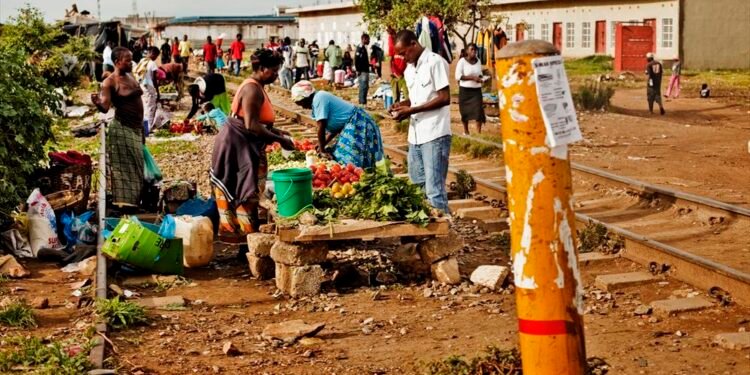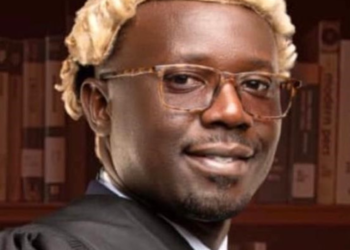‘We, the People of Zambia …’: Why a consensual and transparent constitutional amendment process is critical for Zambia’s constitutional future
Cephas Lumina
THE Constitution is the highest law in Zambia, reflecting the fundamental choices made by the Zambian people that underpin political and social life in the country. It establishes the system of government, regulates public power, safeguards the rights of all individuals in Zambia, and deals with various national issues. It is a sacrosanct document meant to be both foundational and long-lasting. However, for it to remain relevant, the constitution, like others around the world, must be able to adapt to changing needs and circumstances.
Thus, there are times when it becomes necessary to amend the constitution (i.e., make formal changes that modify the content of the constitutional text) to correct errors, address ineffective or unworkable provisions, respond to new ideas or changing societal needs, or reflect evolving values and principles. Constitutional amendments therefore play an important role in ensuring that a constitution remains relevant and responsive to society’s needs. A constitution can also evolve through judicial interpretation. However, it is crucial to protect it from rushed or politically motivated amendments.
Additionally, there is a growing recognition that the power of parliament to amend the constitution is not unlimited, and certain fundamental features, such as the supremacy of the Constitution, separation of powers, rule of law, fundamental rights and freedoms, free and fair elections, limitations on amending power, and judicial independence, are protected from alteration or destruction through amendment.
Undoubtedly, the 2016 amendments to the Constitution introduced some progressive provisions, such as the ‘50% plus one’ clause requiring a presidential candidate to secure more than fifty percent of the total votes cast in an election and the provision for a ‘running mate’ who would become the Vice President. However, there are also several flaws in the Constitution, partly attributed to poor drafting. While some of these flaws or gaps can be addressed through judicial interpretation, the institution responsible for clarifying the Constitution appears incapable of doing so due to various reasons, including a limited understanding of constitutional interpretation methods. This has resulted in questionable decisions that have left litigants and the public perplexed.
In March 2016, Professor Muna Ndulo, a renowned Zambian constitutional scholar, criticized the Constitution as ‘inept, incompetently conceptualized, and badly drafted,’ calling for a complete overhaul. This critique resonates with many who acknowledge the existing deficiencies in the Constitution that require attention. Clearly, the Constitution has several shortcomings that need to be addressed. The question is how and when? Are the recently announced proposed constitutional amendments the answer to this problem?
Constitutional reform in Zambia has been a contentious issue, largely because the process has driven by incumbent governments. It is therefore not surprising that the recently announced proposal to amend the Constitution has excited much public discussion concerning the nature and purpose of the proposed amendments. While the specific details of the proposed changes have not been publicly disclosed, statements from government officials suggest a focus on achieving ‘proportional representation’ for women, young people, and persons with disabilities, as well as addressing issues around delimitation of constituencies. These are important issues that require careful reflection and consideration, without which there is a risk that the planned changes may not achieve their intended aims. Rushing through the amendments increases the risk of their failure.
Furthermore, the Constitution contains various provisions that offer avenues for tackling the issue of political inclusion of marginalized groups. For instance, article 69(1) grants the President the authority to appoint eight members of the National Assembly. Additionally, article 173(1) outlines the core values and principles of the public service, emphasizing the importance of providing fair and equal opportunities for the appointment, training, and progression of individuals from diverse backgrounds, including both genders and all ethnicities. The article also emphasizes the importance of including individuals with disabilities at all levels of the public service. The degree to which these requirements have been followed is open to debate.
The timing of the proposed amendments, with elections approaching next year, has raised suspicions about potential political motives behind the changes. The lack of clarity regarding the extent of the amendments and the process of ‘agreement’ further contribute to public unease. Additionally, while the requirement for a supermajority (two-thirds) in the National Assembly to approve constitutional amendments is seen as a safeguard against unilateral changes by the government, concerns about the integrity of some parliamentarians persist in a climate where there seems to be little public confidence in their commitment to serving the public good rather than their own agendas.
Addressing the deficiencies in the Constitution requires a comprehensive and inclusive approach to constitutional reform, rather than piecemeal changes. Given the contentious nature of constitutional reform in Zambia, a process that ensures broad deliberation, transparency and consensus-building is essential. Rushed amendments without thorough reflection risk undermining the legitimacy and durability of the changes.
The Constitution provides guidance on how this process should be handled. The preamble of the Constitution begins with ‘we, the people of Zambia’ and ends with ‘do hereby solemnly adopt and give to ourselves this Constitution.’ These words reflect the concept of popular sovereignty, indicating that ultimate power rests with the people and that the government is answerable to them. The notion of the people as the supreme source of governmental authority is further evident in other sections of the Constitution, such as article 61 (which states that the legislative authority of the Republic stems from the people of Zambia and must be exercised in a way that upholds the Constitution and promotes democratic governance) and article 90 (which specifies that the executive authority comes from the people of Zambia and should be used for the ‘people’s well-being and benefit’). The preamble and the aforementioned provisions highlight the importance of a constitution that reflects the values and aspirations of the Zambian people.
Upholding the principle of popular sovereignty as mandated by the Constitution is essential in ensuring that any constitutional amendments are in the best interest of the Zambian people. It is also crucial to guarantee that constitutional provisions – whether deemed ‘non-contentious’ or otherwise – are not altered for self-serving, partisan, destructive or short-term reasons and that the process is conducted in a transparent, inclusive and consensual manner. In short, a transparent and consensus-based constitutional amendment (or making) process is critical for Zambia’s constitutional future.
____________
Cephas Lumina is a Professor of Constitutional and International Human Rights Law, an Advocate of the High Court of Zambia and a member of the United Nations Committee on the Rights of the Child. He teaches, among other university courses, Constitution-Making in Africa, Constitutional Law and Constitutional and Human Rights Litigation.

























